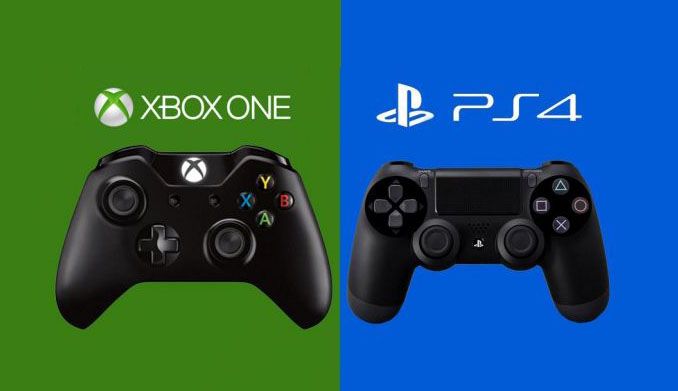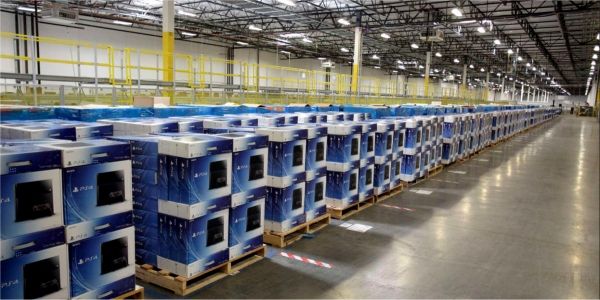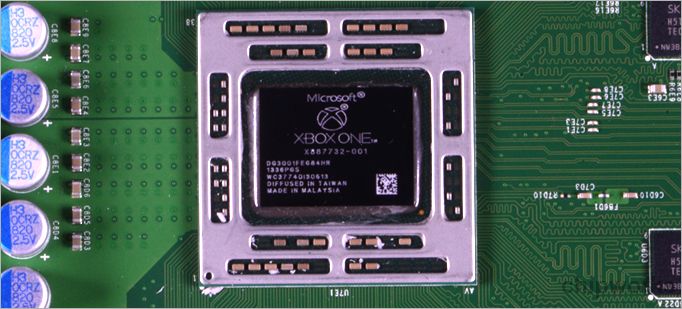The rumors about the PS4 Neo or PS4K, and the Xbox One "Scorpio" or Xbox One-Two (however you want to call them) seem to be pretty solid, at least in terms of their existence. With the mobile market showing that many are very willing to buy updated devices rather often, and Nintendo showing that people will make the jump in the console market as well with the New Nintendo 3DS, it was really just a matter of time before Sony and Microsoft leaped on the opportunity.
Let me premise this with the fact that I'm not very happy about the idea on both sides, mostly because consoles have always found their biggest strength in granting developers the ability to develop for a single hardware. This single fact gives considerable optimization advantages over PC development, which requires support for many different configurations, and a ton of diluted testing across as many of them as possible.
While two configurations aren't as bad as thousands, it most probably mitigates that advantage, and almost certainly increases costs for at least Q&A. Some developers will eat those costs, while others might very well just split their testing resources, resulting in lower quality products at launch.
Disclaimer aside, there is something else that concerns me. It may very well prove an irrational fear, but it's certainly not impossible: the prospect of an escalation.
Unconfirmed rumors mention that the Xbox One successor will be about four times as powerful as the current Xbox One, which would position it at twice the power of the new PS4.
I'm not completely sold on this to be honest, because six teraFLOPS would mean jamming form factor, price range and heat dissipation/energy requirements something just slightly less powerful than a new GTX 1070 (at least for what concerns raw computing power) into a console. That's not exactly science fiction, given the late 2017 time frame; however, it's certainly not an easy technological feat.
But let's assume for a moment that the rumors are correct. We'd have a new scenario in our hands -- not just because of the mere existence of mid-cycle hardware upgrades, but also due to a large difference in power between the two most belligerent sides of the console war (Nintendo seems to be content to do its own thing, lately).
If the Xbox One Scorpio is really that much more powerful than PS4 Neo, the folks at Sony will be faced with two choices: they'll have to either grant the competition the power advantage for the rest of the PS4 generation, or they'll have to respond with an even more powerful PS4 console. Of course, if they went the second route, the ball would be kicked in Microsoft's field, and Phil Spencer and his team would have to choose between the same two options in turn.
This could generate a situation in which the console market would degenerate into an update cycle of about two years for each console, close to what we see with the smartphone market, with Microsoft and Sony continuously pursuing the power advantage and overtaking each other continuously in the hardware race. It would look roughly like this:
- Late 2016 - Sony releases PS4 Neo
- Late 2017 - Microsoft releases Xbox One Scorpio
- Late 2018 - Sony releases PS4 Neo-er
- Late 2019 - Microsoft releases Xbox One Scorpio-Two
- Late 2020 - Sony releases Shin-PS4 Neo-2
- Late 2021 - Microsoft releases Xbox One Scorpio-Two Venom Edition
- ...
I know. I got creative with the names, but the point is that this would be an escalation of the console war, nearly identical to how the United States and the Soviet Union kept building more and bigger nuclear weapons during the Cold War in the attempt to gain the atomic upper hand.
I don't think that it's impossible for Sony and Microsoft to produce new consoles as fast as every two year. If PS4 Neo really comes out towards the end of 2016, it would have taken only three year from the release of the PS4. As production as well as research and development become more confident with the architecture and with the manufacturing supply chain, shortening that time further is not science fiction.
Mobile manufacturers bring new models to the market every year or so, and a modern smartphone isn't much less advanced than a gaming console, in terms of production and R&D.
Of course this probably wouldn't have the same effect as an atomic bomb, but it would certainly be a big change for the console market.
First of all, it would have a sizable impact on the customers: Instead of having to spend your $300-400 bucks every seven-ten years, you'd have to do it every two if you opt to stay at the top of the power race. Of course, this would be further doubled if you like to own both consoles. That's not an irrelevant expense.
It would also have an effect on developers. In order not to displease early adopters too much, Microsoft and Sony seem to be intent on preserving full compatibility between mid-generation upgrades and the original consoles. Having two differeing Xbox One and PS4 models could already have a significant impact in optimization and testing, but that effect would grow incrementally every time a new console is added to the cycle.
The full backward compatibility issue also adds further problems: while compatibility appears to be mandatory, this doesn't mean that the games will run well. As the cycle escalates, and power increases, it would become more and more likely that many developers would focus on the higher and medium end, leaving the bottom line in the dust to deal with choppy frame rates and performance issues.
Of course, if you own a launch PS4 and Xbox One, you'll most likely still be able to play the games, but when the market produces titles that you can only play with poor performance and possibly downgraded visuals (pretty much like PC users with a rig that fits only the minimum requirements nowadays), things would become pretty grim.
You can also see the effect in the mobile market. Most mobile games retain compatibility with older smartphones, but performance on the most demanding ones is simply nasty.
There have been power gaps in the console market before, but they usually weren't very wide (at least behind the most direct competitors). This determined a degree of stability in the industry, with manufacturers feeling "safe" with their hardware for the whole console cycle, and gamers feeling equally safe with their console purchase for a number of years. This "status quo" might very well disappear under the snowball effect created by Sony and Microsoft fighting over TeraFLOPS supremacy.
You might be asking yourself why I defined this concern "possibly irrational."
First of all, besides the obvious possibility that the rumors about a mid-generation upgrade are completely false (which I think is unlikely), the figures provided by the alleged leakers might be inaccurate.
Information on computing power for upcoming hardware is a very closely guarded secret among manufacturers. That's not something they tell to just every employee, so they might very well simply be rumors within the company relayed to the press as fact. You'd be surprised, but the rumor mill works in the same way even among developers and industry professionals.
Of course (given the timing of the new Xbox One's leak that seemed to have been provided to several outlets pretty much simultaneously), they could also be fictional numbers intentionally leaked to hide real plans and to mislead the competition. It certainly wouldn't be the first time this tactic is used in several industries, and it could be a gaming industry equivalent to the concept of nuclear deterrence.
Even assuming that the figures are accurate, shifting to a two year upgrade cycle would require not only a radical change of mindset among console manufacturers, but also significant adjustments to the R&D and production pipelines.
It would certainly be very costly, and require large marketing and communication resources even just to placate early adopters, many of whom might very well feel that they have been sold a product with the implicit promise that it would have provided them with the best gaming experience on consoles for several years. While that promise hasn't been made explicitly, it was part of the status quo, and the status quo does have a role in influencing the consumers' opinion. It's likely that upsetting it too much would cause sour feelings.
All these elements might serve as a damper to the possibility of an escalation, with whoever ends up on the bottom end of the mid-cycle power competition deciding to settle and focus its marketing on other strong points of the console (pretty much like Microsoft did until now) holding on until the end of the generation.
If the PS4 Neo proves to be really less powerful than Scorpio, Sony might decide that their current installed base lead is enough to hold on the upper hand even with a teraFLOPS disadvantage, betting on the fact that developers are normally more encouraged to release their games on the console that is in the hands of more customers than on the most powerful one.
How likely that is, I honestly don't know, especially considering how heated the competition has been during the past few years. I can only say that I hope that my concern will prove to be irrational, and that an escalation won't happen. I'm not paid enough for this.




